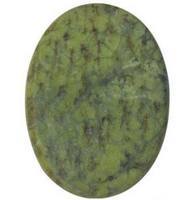Additional Details
Canadian Jade is an ornamental stone. The term jade is applied to two different rocks that are made up of different silicate minerals. Magnesium-rich amphibole mineralactinolite (aggregates of which also make up one form of asbestos). The rock calledjadeitite consists almost entirely of jadeite, a sodium- and aluminium-rich pyroxene. The trade name Jadite is sometimes applied to translucent / opaque green glass.Jadeite was used by people from the prehistoric for similar purposes. Both are about the same hardness as quartz, and they are exceptionally tough. They are beautifully coloured and can be delicately shaped. Thus it was not until the 19th century that a French mineralogist determined that "jade" was in fact two different materials.Among the earliest known jade artifacts excavated from prehistoric sites are simple ornaments with bead, button, and tubular shapes. Additionally, jade was used for axeheads, knives, and other weapons. As metal-working technologies became available, the beauty of jade made it valuable for ornaments and decorative objects.Jade is the official gemstone of British Columbia, where it is found in large deposits in the Lillooet and Cassiar regions. It is also the official gemstone of the state of Alaska, found particularly in the Kobuk area. A two ton block of jade sits outside the Anchorage Visitor's Center in downtown Anchorage, Alaska, mined from near Kobuk and donated to the city as a showpiece. Jade is also the state gemstone of Wyoming, U.S.A.

